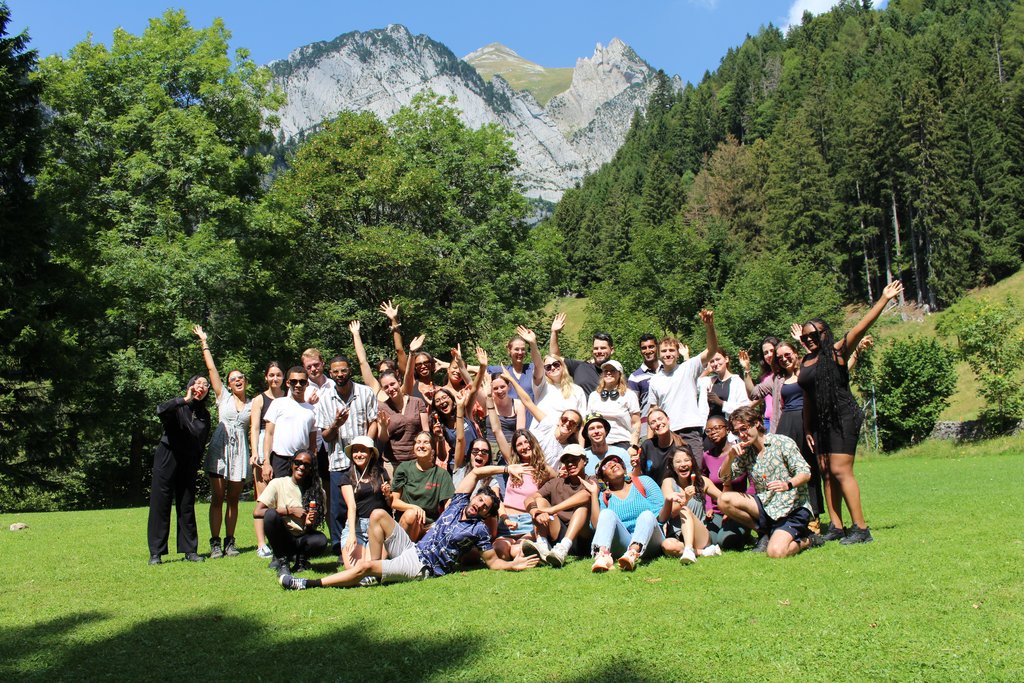Media releases - 10.08.2023 - 15:41
Launch International Summer School on Climate Justice
This summer, HSG invites students from all over the world to the "THRIVE Impact Summer School" where they will exchange ideas focused on climate justice.

Summer schools are a tradition at universities worldwide. Through the Competence Center for Social Innovation (CSI), HSG has now also launched the "THRIVE Impact Summer School" in St.Gallen. This will be held for the first time at SQUARE from 18-25 August 2023 and will bring together around 40 students from universities globally. The school will focus on the topic of climate justice.
"We have crossed six out of nine planetary boundaries. The so-called MAPAs (Most Affected People and Areas) in particular suffer from the associated impacts of climate change," says Julia Bahlmann, HSG doctoral student and project leader of the Summer School. "The MAPAs represents groups and territories that are disproportionately affected by climate change such as women, ethnic minorities and poor people." The issue of climate justice, she said, is one of the key challenges students will face now and in the future. The Summer School will explore a different topic at the intersection of sustainability and social innovation each year.
School builds interdisciplinary network
Approximately 20 HSG students and 10 students from Columbia University in New York - this year's partner university - will participate. According to Bahlmann, in selecting the applications, care was taken to ensure possible diversity in terms of "backgrounds, life experiences, ethnic origin and nationality". In addition to business students, those from the fields of medicine and engineering will also be present.
Focus on an alternative economic model
To kick off the week, the students will look at Kate Raworth's alternative economic model, so-called "Doughnut Economics". This takes the concept of planetary and social boundaries as the starting point for all economic activity. Existing economic systems are also critically questioned. During the Summer School, the students will work in groups on case studies that deal with the sustainable transformation of companies, for example. The week will be complemented by discussions on the role of activism, impact measurement, technology and artificial intelligence, among others.
Various experts will exchange ideas with the students during this week. They include Till Kellerhoff, programme director at the growth-critical Club of Rome, the doctor Bea Albermann, who deals with the connection between the climate crisis and health issues, and the Swiss sustainability activist and HSG graduate Nora Wilhelm. Rolf Wüstenhagen, HSG professor of Renewable Energy Management, and Michael Fritz, founder of the NGO Viva con Agua, will also address the students. "The fact that we invite people with diverse professional backgrounds as speakers is a central component of the continuing education at the Summer School," says Dr Rachel Brooks, Head of Executive Education at CSI who is largely responsible for the curriculum at the THRIVE Impact Summer School. "In addition to the continuing education of the students, it is important for us to build an interdisciplinary and international network," says Brooks.
Students present solutions
At the end of the week, students can present their entrepreneurial solutions for their respective case studies to representatives of the Switzerland Innovation Park East. The organisation links business and science and enables admission to an exclusive partner network that also provides attractive start-up financing, among other things.
The THRIVE Impact Summer School is expected to grow in the coming years. According to Julia Bahlmann, hybrid events are also planned for the future in order to expand the circle of potential participants. "We want to contribute to the achievement of the UN Sustainable Development Goals and become one of the leading impact summer schools in Europe," she says.